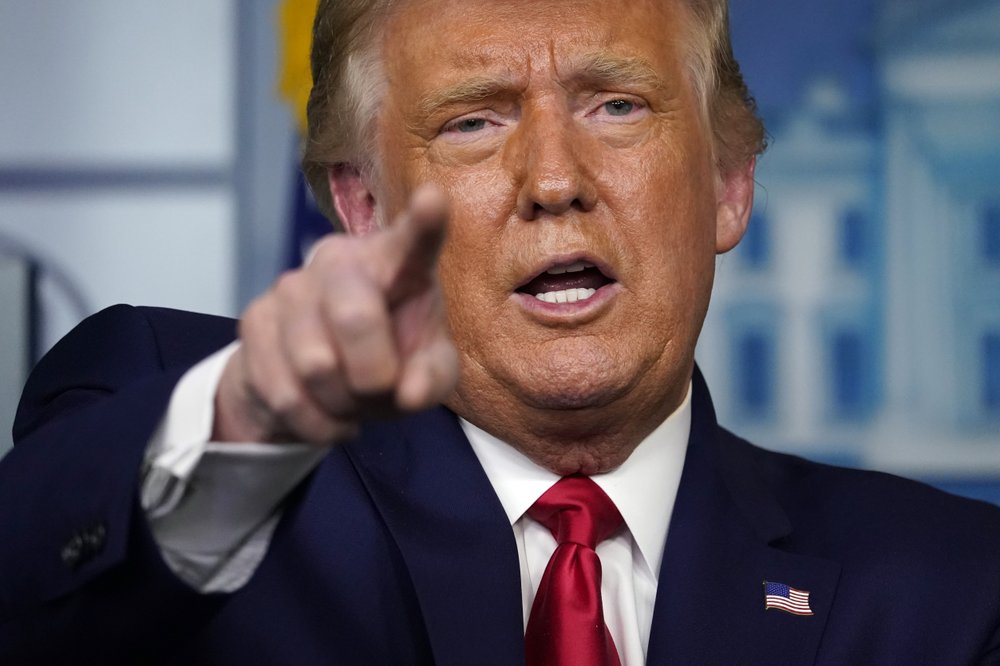“I hope you’re recording this, so you get it down,” Bob Woodward says, nary a hint of irony in his voice.

Indeed, relying solely on notes for a conversation with the celebrated Washington Post reporter and editor would border on journalistic malpractice, considering the starring role audio tapes have played in Woodward’s 49-year career.
At the beginning, of course, was Watergate, the definitive presidential scandal he exposed with colleague Carl Bernstein, culminating in 1974 with what Richard Nixon’s surreptitious microphones caught him saying in the Oval Office.
Some 46 years later, the sound of a president’s voice on tape is again making headlines, thanks to Woodward. This time, it’s Donald Trump, admitting in an interview his intentional efforts to “play down” the clear and present danger of COVID-19.
“What was coming to the United States, what was here, was a pandemic very much like the 1918 Spanish flu pandemic. That’s the key moment,” Woodward, 77, said over the phone about the Jan. 28 briefing where Trump learned the gravity of the threat.
Ten days later, Woodward would learn the truth. The rest of the country found out the hard way.
“(Trump) failed to tell the American people the truth,” he said. “He failed to carry out his responsibility as president to take care of and protect the American people.”
That charge of nonfeasance is just one of several explosive revelations driving Woodward’s latest book, “Rage,” a sequel of sorts to “Fear,” a 2018 account of Trump’s first term that featured no direct interviews with the president.

For Rage, there were 19 of them ? only one wasn’t recorded; Trump called out of the blue, a reporter’s nightmare ? that give the book a remarkable Watergate echo: the most damning details come from the president himself.
Critics have slammed Woodward himself for waiting so long to reveal what he learned in February. But he needed time, he says, to confirm what he’d heard from a man notorious for lies, exaggerations and self-aggrandizement.

Get daily National news
That took until May, by which point none of the details would have been particularly revelatory, since the virus was already raging in the U.S. and around the world. So Woodward focused instead on getting the book done before the Nov. 3 presidential election.
“I, many times, have gone to editors of The Washington Post and said, ‘I have a story here that needs to be in the paper,”’ he said.
“I would have done so in this case if at any point I could save a single life, but they would have said, ‘What’s the story?”’
Woodward doesn’t disclose many of his sources, describing them only as “first-hand participants and witnesses” who spoke on “deep background” ? another Watergateism that describes non-quotable conversations.
That doesn’t prevent “Rage” from attributing countless quotes to members of his supporting cast, including ex-intelligence chief Dan Coats, former defence secretary James Mattis and ousted secretary of state Rex Tillerson, all of them ultimately derailed by Trump’s stubborn I-know-better attitude.
Woodward himself encountered that intransigence first-hand. At one point, armed with a list of 14 priority areas, he pressed Trump on the plans to improve things like testing, international co-operation, intelligence gathering and national shelter-in-place plans.
Like so many others, he got nowhere.
“He was blowing off both me and the list,” Woodward writes in the book. “Beyond being a reporter, I was worried for the country.”
Woodward describes himself as an “old-school” reporter, one for whom trying to sway public policy isn’t part of his job description, a philosophy he learned from Post editor Ben Bradlee during the Watergate era.
“That’s not the business we’re in, the business of changing public policy, affecting public policy, affecting politics. It’s ‘Get the best obtainable version of the truth out.”’

But with Trump, he found himself straining to better understand the man behind the Resolute Desk, and unable to resist passing judgment on a president who “doesn’t know the difference between a lie and a truth,” according to his own former secretary of defence.
“That is not a qualification for president of the United States.”
Woodward recalled how much of the most important Post reporting on Watergate was published in September and October 1972. Nixon promptly went out and got re-elected, claiming victory in 49 of the 50 states.
His mentor was surprisingly sanguine.
“Bradlee was, ‘OK, we did our job. People can accept that or not accept that.’ And then people realize, not only what we had written was true, but in fact understated,” he said.
“That was the evolving process. He always said the truth emerges. And I believe that’s true.”
As for how America will fare on and after Nov. 3, Woodward knows it will be less clear-cut.
He sounded genuinely worried about the risk of political and public pandemonium, given how many voters are expected to cast their ballots by mail in the face of COVID-19.
As the president, publicly and without evidence, seeks to discredit mail-in voting, observers fear a delay in results could combine with early in-person support for Trump to result in a chaotic, uncertain and disputed outcome in the weeks that follow.
“I think it’s a toss-up; I think he could win, and I think he could lose,” Woodward said.
“We’re heading into a blizzard, a political, electoral and moral blizzard. It’s gonna test us.”







Comments
Want to discuss? Please read our Commenting Policy first.